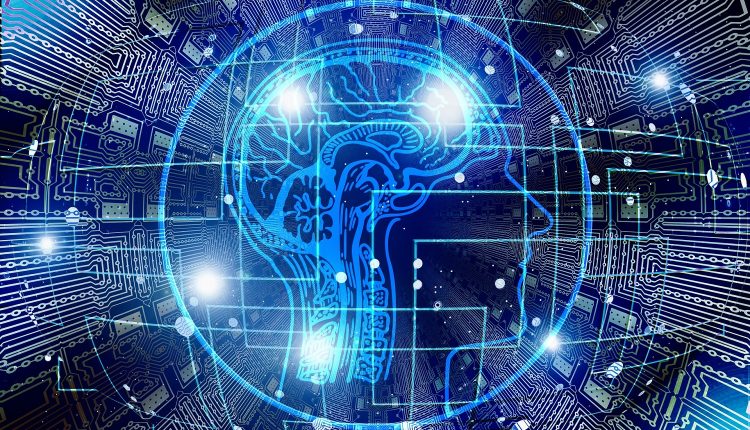Cyber defense in the age of intelligence
Dr. Jassim Haji, President of Artificial Intelligence Group, on the benefits of using AI for cybersecurity

Data is the fuel of the modern digital economy. While this brings enormous benefits to all, global data volumes will exceed 19 zettabytes in the next two years. It is a figure that is too much for most of us to even comprehend, with one zettabyte equal to a trillion gigabytes. Concurrently, the world is under threat from increased and highly damaging cyberthreats. Therefore, it is inevitable that we develop robust IT systems to secure our data, and do so at scale. It is certainly beyond human capacity to effectively manage and secure without the help of artificial intelligence (AI). Only AI comes close to solving this enormous challenge.
A typical large organization would encounter an average of 200,000 security alerts every day. This would overwhelm any IT security setup. It is common for IT security teams to ignore some of the alerts they consider a low-to-medium priority. A report by IT security firm Trend Micro found out that most (51%) of IT leaders feel their team is being overwhelmed by the volume of alerts, and 55% admit that they aren’t entirely confident in their ability to prioritize and respond to them. Forty percent, the report reveals, choose to ignore such warnings, opening them up to potential vulnerabilities.
Unlike humans, AI doesn’t fatigue or misjudge any threat. AI algorithms will scan every single alert and take appropriate action. Even better, AI’s machine learning (ML) capabilities mean that the system will learn from any previous experience, which it can leverage to identify and eliminate future threats. Today, advanced AI systems can predict future attacks, sometimes weeks and months before they are unleashed.
Another reason why organisations must include AI in the cyber defense toolkit is the fact that recent sophisticated attacks such as those targeting government agencies and utilities have been carried out using AI and ML tools. Cybercriminals no longer manually monitor networks and then decide how to hack or penetrate the network. These algorithms can scan millions of network devices or data points simultaneously until they detect a vulnerability.
Therefore, the only appropriate response is to match the cybercriminals with our own powerful AI tools. As mentioned before, AI can monitor the network multiple times better than humans. It can easily recognize patterns and catch any abnormal behaviors that deviate from predictable actions.
This whitepaper by Huawei captures the risk and opportunities that arise from wider AI adoption, noting that artificial intelligence can be used to build more advanced defensive systems such as malware and network attack detection, while on the other hand, exploited to launch more effective attacks.
AI will also be critical in securing Industry 4.0. For example, the Internet of Things (IoT) will result in millions of new sensors and IoT devices connecting to the network. Each one could be a potential vulnerability no matter how much you secure your cloud, the edge, or the other parts of the data transfer process. It is beyond the capability of any organization to monitor such an expansive digital landscape effectively.
There are headwinds on the horizon, however. Cybersecurity is a global challenge. Ideally, cross-border collaboration should be standard. Yet the level of digital maturity in countries varies widely, and now the world finds itself split between the digital haves and have nots. The disparity will only widen as AI accelerates digital-centric societies. Synchronising cyber response then becomes difficult, leaving gaps that cybercriminals can exploit. We must strive to ensure that the benefits of AI are distributed throughout the world. It is no longer enough just to have Internet or other basic technology such as mobile connectivity.
Common platforms that bring together the broader digital ecosystem to collaborate on cyber defense initiatives will be crucial in managing an increasingly complex threat landscape. The global network of Global Cybersecurity and Privacy Protection Transparency Centers by Huawei is an excellent step in this direction. The biggest of these Centers opened in Dongguan, China, in 2021, specifically to address these issues, offering an open platform for industry stakeholders to share expertise in cyber governance and create technical solutions together.
Moving forward, the region’s rapid development around the cloud is good for AI. Cloud data centres by hyperscalers are now widespread throughout the region, offering an ideal platform for researchers and startups to use the cloud platforms as AI R&D centers not just for local needs but for global consumption and collaboration with international tech giants. In the cloud alone, approximately 81% of enterprises globally now use cloud-based applications. It is good to see that global tech companies like Huawei is determined to extend cloud benefits to countries in the Middle East. The company recently announced investing USD15 million to support cloud-oriented ecosystem development in the region, and currently has already developed more than 100 local partners in the Middle East. The commpany recently announced a support program for developing 3,000 cloud experts in the region as part of the HUAWEI CLOUD Oasis Program.
Looking back at the last decade, it was inevitable that AI would reach this stage. It is ultimately a positive development. The pandemic has fast-tracked this progress bringing it forward by five years or so. We saw this in the medical field, where AI accelerated some of the processes involved in researching and developing medicine, reducing the drug discovery period from years to weeks. Now, AI will serve another important role in society to help mitigate the risks of cyber-attacks while promoting the resiliency of all businesses in the digital era.





